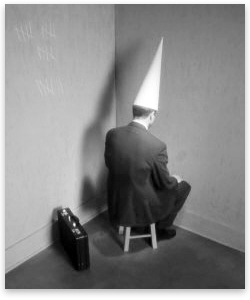Do Japanese Elementary Schools Need More English?
Saw this article in the Asahi newspaper online yesterday. Basically, the government is leaning towards making English an official subject (it isn’t one at the moment, just an extra set of activities), which would mean more classes, and lowering the age at which students start learning English.
Great. This is yet another good idea that is going to be executed horribly.
You know what I would like to see in elementary school.
You know that Japan’s English teachers are on the whole undertrained and not proficient in English (only 20% of JHS and 35% of SHS English teachers have reasonable English qualifications).
I think there should be English classes in elementary school, but they need to be well-planned and implemented by teachers who know how to teach and are proficient in English. Sadly I don’t think we’re going to see either of those…
Am I being too pessimistic?
You make a great point. The government always seems to be interested in numbers only. Students are apparently getting lower grades than before so add more classes, open up Saturday classes again etc etc.
There’s little thought about how to improve classes/the curriculum or that the 100% testing culture causes lots of stress and fails to support those with other skills that come out in coursework and group projects etc.
When it was announced that the government was thinking about doubling the number of JETs, I just assumed that they have a load of cash they want to spend quickly from the budget. The trouble is they have little clue or the inclination to consider how best to use it.
I was at a top-level public high school in Tokyo yesterday and asked about the recent curriculum reform. The teacher just laughed and said they haven’t changed a thing about their classes. To be fair, this is a school which gets results.
They have been talking about it for 20 years. They have had pilot schools. They have tried small-scale forays into English language classes on a national scale. Still, no child in elementary school who is not attending a private language school graduates with the ability to speak, read or write English. What is the point??? They should save some money and focus on English in early childhood immersion experiences. That way, they could actually effectively teach phonological awareness, receptive language skills and sound discrimination. Then they might have a realistic chance of building upon that meaningfully with an elementary school curriculum.
Thanks Cynthia
I agree that if they are not going to do it properly it’s probably not worth doing at all. I always got the feeling the English in elementary school thing was just to avoid fixing the entrenched mess in JHS and SHS, and to be seen to be doing something. I mainly feel sorry for the teachers and students that have to implement this with inadequate support.
It’s the usual response to any situation in Japan; don’t reform anything or do anything more efficiently, just do it more. Mohhhhh!
I was teaching in elementary schools three or four years ago, just before they made English compulsory, even if it was just as an ‘activity’. The teachers were, if you’ll excuse the language, shitting themselves. Because as you rightly point out, none of them could speak English worth a jot.
And why would they? It wasn’t necessary when they did their training. Can’t blame them for focusing on the stuff they thought they’d actually need at the expense of stuff they thought they wouldn’t.
So technology comes to the rescue. laptops, interactive whiteboards, the whole nine yards. Because what better way to teach impressionable young minds about the reality of intercultural, interpersonal communication than by automated processes! Not so long ago I saw a newspaper report extolling the use of this stuff in the classroom and “the authentic pronunciation produced by the board.”
That’s, “the authentic pronunciation produced by the board.”
So no, I don’t think you’re being too pessimistic.

Have just re-read the article on MEXT stats from last year, and I think I got the numbers wrong. I apologize.
It’s actually 27% of JHS teachers and 52% of SHS teachers.